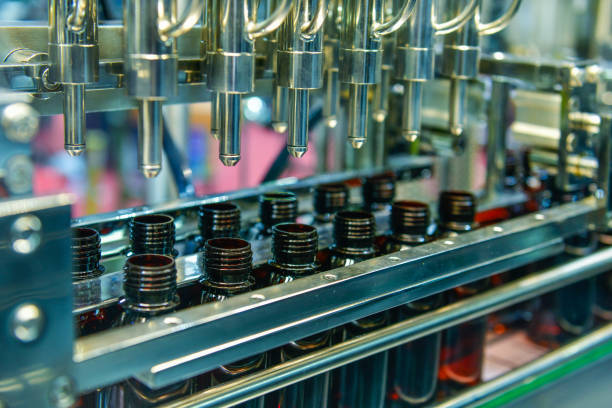Industrial Automation in Chemicals

Q1. Could you start by giving us a brief overview of your professional background, particularly focusing on your expertise in the industry?
After graduating from Calcutta University, I started my career in a continuous manufacturing plant. It has been challenging 15+ years since I have been serving this industry. The path from Shift engineer and gradually becoming Team leader was not smooth always but was definitely of learning.
Working in the industrial automation sector, I realized that reliability and safety are the major components of measurement and control systems. Every complex or simple process must govern a reliable automation system to get stability & operational efficiency.
Q2. How is the market segmented by types of automation solutions (e.g., control systems, robotics, sensors) and by application areas within the chemical sector?
Generally, Oil & gas, petroleum, and fertilizers & Industries dealing with hazardous chemicals select automation systems, i.e., instruments, Process Control systems, and emergency shutdown systems with maximum reliability and safety standards.
Automobile Industries with Assembly line production normally deal with advanced machinery automation systems like robotics, fast sensing instruments, and controllers with high scanning ability.
The power sector generally deals with reliable SCADA automation systems with various features, including smooth transmission, quick fault finding, and predictive analysis of equipment health.
In all sectors, the drive is towards establishing Industry 4.0 initiatives to achieve maximum operational efficiency.
Q3. What are the key purchasing criteria for companies in the chemical industry when selecting industrial automation solutions?
Key purchasing criteria include:
- Safety standards
- Accuracy of measurement & control
- Ability to stabilize unstable processes
- Cost competitiveness
- Ease of handling
- Less failure rate
- Devices with cloud Interfacing capability, etc.
Q4. What economic benefits do companies report after integrating APC technologies into their DCS?
APC (Advanced Process Control) technology is one step above the common DCS system. Normally, process control is achieved through continuous monitoring, action, and alertness of operators sitting in front of the DCS operating screen. Manual intervention often results in inadequate process control, resulting in the quality of products being compromised.
APC system, once installed, completely takes care of the entire system, including operator decisions in most cases. It results in almost zero product loss due to quality deterioration and off-spec material generation during start-up and process changeover. Successful implementation is a key factor for APC.
Q5. How do regulatory requirements in different regions affect the adoption and implementation of industrial automation systems in the chemical industry?
Chemical industries need to comply with multiple regulatory requirements. It depends on the type of industries and their products. Common statutory requirement involves:
- Compliance of Environment
- Labour law
- Factories act
- Indian Boiler act
- PESO act
- Electricity act etc.
Coming to industrial automation in place for these hazardous chemical industries, the following are organizations whose regulations or standards are being followed
- ISA (International Society of Automation) standards
- IEC (International Electrotechnical Council) standard for SIS (Safety Instrumented System)
- Cybersecurity standard
- CPCB & SPCB norms & regulations
- AERB (Atomic Energy Regulatory Board) laws are in place for industries using radioactive products, instruments, etc.
Q6. How is the adoption of industrial automation technology impacting customer experience and operational efficiency in the chemical industry?
To exist in a competitive industry market, automation is a necessity; it is not desirable but rather necessary.
This necessity causes multiple inventions and improvements in the industrial automation sector. OEMs of various large automation sectors are engaging skilled human resources to invent newer technologies that will improve operational efficiency and, hence, the satisfaction of industrial customers. Healthy competition among automation product manufacturers improved the efficiency and quality of factory products, satisfying customers.
Advanced automation tools are in place at each industry level, from drilling and welding to shaft alignment and controlling a critical process. It is necessary to accelerate operational efficiency.
Q7. If you were an investor looking at companies within the space, what critical question would you pose to their senior management?
As an investor, my focus will always be on long-term profit. Contributing to society and the environment should be mingled with profit. The following are major key factors to be considered during Investing
- Performance of the company in the recent past
- Business aspiration of the company
- Policies related to Human resources
- ESG index
- CSR activities
Comments
No comments yet. Be the first to comment!
